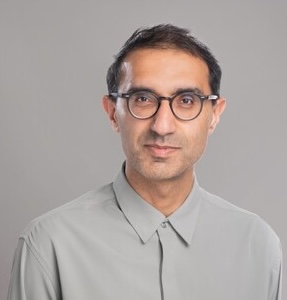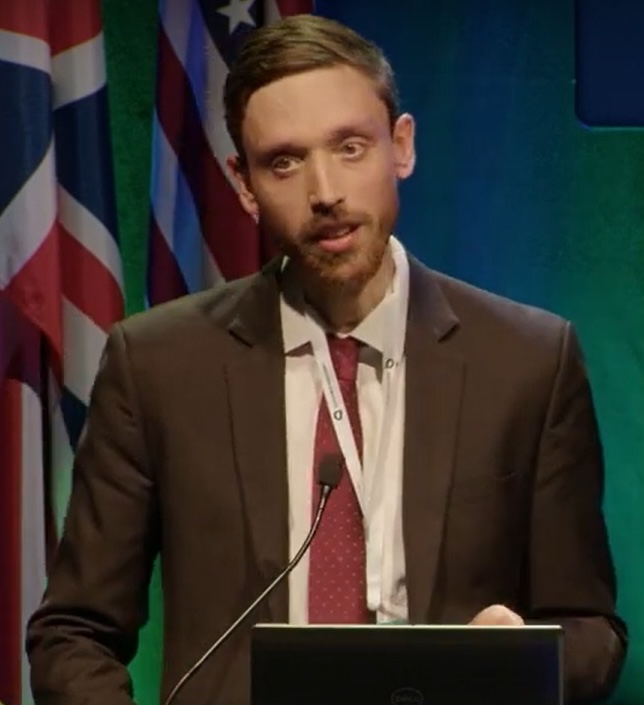Artificial Intelligence
Cyber
Future Telecoms
Materials
Quantum
Wise words and waggishness… February 2026
Reading time: 2 mins
Ten years on, the UK’s quantum ambitions are becoming reality – but the hard work is only just beginning, say speakers at UKRI event
A decade after the launch of the UK’s National Quantum Technologies Programme, the UK’s quantum industry is beginning to deliver on its early promise, if this year’s Quantum Technologies Showcase in London is anything to go by. Exhibitors ranged from international leaders such as IBM, PsiQuantum, Quantinuum, Rigetti and Toshiba, to home-grown innovators including Oxford Ionics, Riverlane, Quantum Motion, Phasecraft, KETS, Siloton, and Quantum Dice – a reminder that the UK’s quantum ecosystem now spans from research spinouts to global players.

“It’s been ten years since the launch of the UK’s quantum programme,” said Professor Charlotte Deane, executive chair of the Engineering and Physical Sciences Research Council (EPSRC). “Over a billion pounds of public funds has been invested and about the same amount of private money has gone in.”
Deane reminded delegates that the UK’s strength lies in the long game. “EPSRC has been putting money into this field over an enormous number of years,” she said. “It’s amazing to watch these things come to fruition, from basic research and the ideas people had into products and things we can see in reality.”
Skills remain central to that success, she added, claiming that more than 500 people have already been trained through the EPSRC PhD programmes. She also noted that it has just funded five new centres for doctoral training and 100 additional studentships.
“It’s humans that do the work,” she said. “Training those humans and giving them the space and the money to be able to do this is what changes the field.”
Her opening message set the tone for the day. Quantum has matured from a curiosity of the research base into a workforce, a supply chain, and a marketplace.
For Emran Mian, permanent secretary at the Department for Science, Innovation and Technology (DSIT), quantum now sits at the heart of the UK’s industrial strategy. He said that R&D is, of course, a very big part of that, but that there are three priorities: protecting foundational science; supporting strategic government and societal priorities; and targeting UK-based company scale-up and growth.
“Quantum,” he said, “is one of those areas that spans across all three.”
That ambition is now being matched by funding. “Our R&D budget will grow in real terms to total £58.5 billion from 2026–27 to 2029–30,” Mian confirmed.

He described frontier technologies such as quantum as “among the fastest-growing parts of our economy and therefore a true vehicle for growth,” adding that the UK must be “properly ambitious” about the areas where it has strategic advantage.
“Our ambitions for 2035,” he said, “are for the UK to be one of the top three places in the world to create, invest in and scale technology businesses, and to help to create the UK’s first trillion-dollar technology company.”
Mian also pointed to a major shift in how government supports emerging industries.
“We’re progressing with five national quantum missions and investing £670 million to accelerate the development and adoption of quantum computers here in the UK. This first tranche of investment is one of the most significant and sustained public commitments into quantum computing globally,” he said. “Too often in the past, government sets out a plan and then feels the job is done. We need to focus really, really hard on delivering this.”
Tom Newby, head of the Office for Quantum at DSIT, said the shift from planning to delivery is now well underway.
“We’re getting on and delivering £127 million just this financial year across the objectives we set out in the National Quantum Strategy,” he said, adding that those objectives reach well beyond research funding. “We’re standing up the new research hubs, rolling out the centres for doctoral training and funding 300 new PhDs, fellowships, and apprenticeships.”

Quantum, he stressed, is now a whole-of-government effort.
“We have representatives from the Treasury, Business, Transport, Defence, Health, Housing and Local Communities, the Home Office, even some agencies I’m not allowed to talk about. That recognises that quantum is not a niche product but absolutely essential to the future of our public services and to growth in the UK.”
The list of practical applications is growing quickly. The Department for Health is co-funding the Q-BIOMED Hub. The Royal Navy has deployed quantum optical atomic clocks on an uncrewed submarine. The Department for Transport has launched its own quantum-sensing competition, and the National Grid is working with Nu Quantum on energy applications.
These examples, he said, show how government can act as a first customer, stimulating early markets and proving capability before private demand follows.
Newby also pointed to a growing flow of private capital alongside public programmes.
“We’ve seen a significant amount of inward investment,” he said. “£25 million from Photonic to set up in the UK, QuEra establishing an Oxford hub, and IonQ committing to make the UK its EMEA headquarters following its partnership with Oxford Ionics.”
International collaboration, he said, remains critical. The UK has now signed a series of bilateral and multilateral partnerships, with the US, Japan, Canada, and the EU via Horizon Europe, aimed at accelerating technology transfer, skills, and market access.
Regulation and standards have also become a source of influence.
“We convened the first Quantum Regulators Forum globally,” Newby said, “and the UK is the Secretariat for JTC-3, the world’s first dedicated standards committee for quantum technologies.” A new NMI-Q initiative, launched by science minister Sir Patrick Vallance, will “create a global alliance of national metrology institutes working on standardisation in the quantum domain.”
A decade on from its first national programme, the UK’s quantum effort has evolved from research to resilience, a connected ecosystem of labs, start-ups, and investors with global reach. The ambition now, as both Mian and Newby made clear, is to lead in delivery, not just in discovery.

Working as a technology journalist and writer since 1989, Marc has written for a wide range of titles on technology, business, education, politics and sustainability, with work appearing in The Guardian, The Register, New Statesman, Computer Weekly and many more.
Quantum
Reading time: 10 mins
Quantum
Reading time: 10 mins
Future Telecoms
Reading time: 2 mins
Quantum
Reading time: 11 mins
Quantum
Reading time: 5 mins